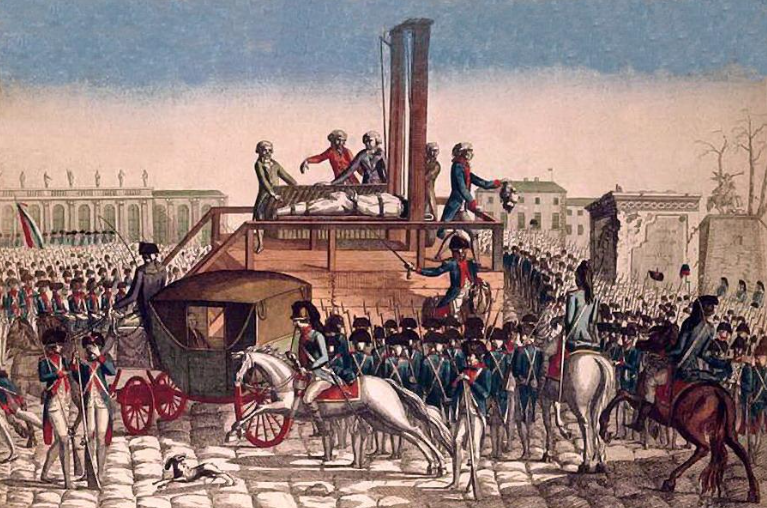In a recent interview with “The Spectator,” Israeli-American philosopher Yoram Hazony claimed that we in the West are experiencing a “quiet revolution.” Others have made similar observations.
This is not by accident. Indeed, many progressives regret that our American Revolution, tempered as it was by theistic belief and fear of concentrated power, did not go as far as the Revolution in France, which was much more secular and humanistic.
Based on Hazony’s comments, progressives finally seem to be getting their wish.
But does this turn toward secularism bring the kind of cultural boon that the progressives hope? A quick glance at recent developments suggests not, for even though there’s been no guillotine, recent happenings seem to have their precedent in France circa 1789, particularly in the aggressive way in which the Biden and Obama administrations have gone after their opponents.
These decisions are proving harmful to our body politic, creating a complexity of governmental problems. A law broken today for political purposes—such as using doctored FISA warrants to spy on opponents—has to be followed with an even more egregious act in order to retain power, such as locking up political enemies, as the current administration has done with Trump associates and seems to want to do with the former president himself. These were just the kinds of tactics used during the Reign of Terror.
These intemperate acts were not characteristic of our first revolution. According to theologian Francis Schaeffer, the American Revolution, like the 1688 Bloodless Revolution in Great Britain, benefited from the restraining effect of post-Reformation Christianity, whose tenets stressed not only the theological virtues of faith, hope, and love but also the cardinal ones: justice, prudence, temperance, and fortitude. Schaeffer reasoned that countries like England and America benefited from the rebirth of virtue associated with the Reformation, while countries in southern Europe like France, where the Reformation did not take hold, were left to their own devices. To Schaeffer, it was our country’s renewed general commitment to Christianity that spared us from guillotines, jail sentences, and Reigns of Terror.
With this line of thinking, it isn’t difficult to accept what is happening in the new secular revolution. According to the Humanist Manifesto, “the complete realization of human personality” is “the end of man’s life” and “seeks its development and fulfillment in the here and now.” Thus, unlike the tempering, ameliorating effect of religious belief present among so many during the American Revolution, the New Revolution has no such concerns about moral judgment from a higher power and is free to pursue its political goals without worry.
I believe the country is undergoing the very “quiet revolution,” which Hazony mentioned above. This seems to be the result of progressives who do not think the American Revolution went as far as it should have and would like us to be more like France, as well as some of the more secular countries in Europe.
But these progressives should stop and think. They should recognize the tempering, humbling effect of religious belief and develop some kind of doctrine for their own fallibility. This is what saved us from the bloodiness of the French Revolution. If this is not done, we could just be headed for our own Reign of Terror.
Along with his father, Allen Keller runs a lumber business in Stevenson, Alabama. He has a Ph.D. in Creative Writing from Florida State University and an MBA from University of Virginia. He can be reached for comment at allen@kellerlumber.net.
The views and opinions expressed here are those of the author and do not necessarily reflect the policy or position of 1819 News.
Don't miss out! Subscribe to our newsletter and get our top stories every weekday morning.










